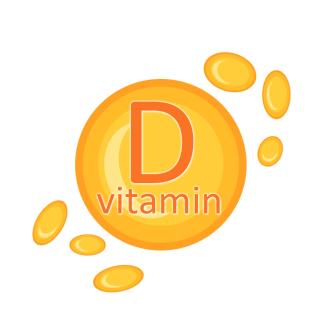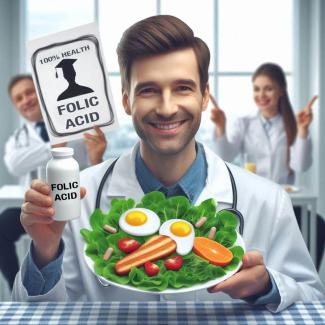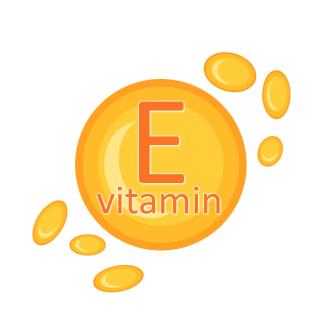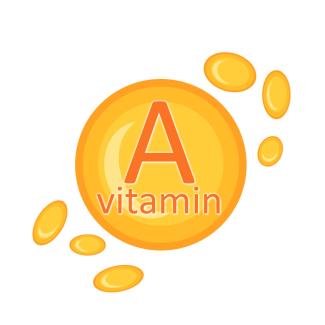
Vitamin D is an essential nutrient that plays a crucial role in maintaining good health. It is unique among vitamins because our bodies can produce it when our skin is exposed to sunlight. Here are some of the key reasons why we need vitamin D:
- Bone Health: Vitamin D is perhaps most well-known for its role in calcium absorption. It helps the body absorb calcium from the digestive tract, which is essential for the development and maintenance of strong and healthy bones. Without sufficient vitamin D, the body can't effectively use the calcium it gets from the diet, leading to weakened bones and an increased risk of conditions like osteoporosis.
- Immune Function: There is emerging evidence that vitamin D also plays a role in supporting the immune system. It may help the body defend against infections and modulate immune responses, reducing the risk of autoimmune diseases and infectious diseases.
- Mood and Mental Health: Some studies suggest that vitamin D may have a role in mood regulation and mental health. Low levels of vitamin D have been associated with an increased risk of depression, and there is ongoing research into the potential links between vitamin D and conditions like seasonal affective disorder (SAD).
- Cardiovascular Health: Research indicates that adequate vitamin D levels may support heart health. It may help regulate blood pressure, reduce inflammation, and improve the function of blood vessels, potentially lowering the risk of cardiovascular diseases.
- Cancer Prevention: Some studies have suggested that vitamin D might have a protective role against certain types of cancer, including breast, prostate, and colorectal cancer. However, more research is needed to establish these links definitively.
- Autoimmune Diseases: Vitamin D deficiency has been associated with an increased risk of autoimmune diseases like multiple sclerosis, rheumatoid arthritis, and type 1 diabetes. It may help regulate the immune response and reduce the risk of these conditions.
- Muscle Function: Adequate vitamin D is important for muscle function, and deficiency can lead to muscle weakness and pain.
- Weight Management: Some research has suggested a link between vitamin D and weight management. It may help regulate appetite and metabolism, although more research is needed to fully understand this relationship.
It's worth noting that getting too much vitamin D can be harmful, so it's important to maintain an appropriate balance. You can obtain vitamin D through exposure to sunlight, dietary sources (such as fatty fish, fortified dairy products, and supplements), and, to a lesser extent, through some mushrooms. It's recommended to consult with a healthcare professional to determine your individual vitamin D needs, as they can vary based on factors like age, skin type, geographic location, and overall health.
Vitamin D - the best foods with high vitamin D content
Vitamin D is a unique nutrient because our bodies can produce it when our skin is exposed to sunlight. However, there are also dietary sources of vitamin D that can help you meet your daily requirements. Here are some of the best foods with high vitamin D content:
- Fatty Fish: Fatty fish are among the best natural dietary sources of vitamin D. Examples include salmon, mackerel, sardines, trout, and tuna. A 3.5-ounce (100-gram) serving of cooked salmon can provide over 570 IU (International Units) of vitamin D, which is more than the daily recommended intake for most adults.
- Cod Liver Oil: Cod liver oil is one of the most concentrated sources of vitamin D. Just one tablespoon can provide well over the recommended daily intake. It's available as a supplement.
- Mushrooms: Some types of mushrooms, such as shiitake and maitake, can naturally produce vitamin D when exposed to ultraviolet (UV) light, similar to how human skin synthesizes it. While not as high as some other sources, mushrooms can contribute to your vitamin D intake.
- Egg Yolks: Egg yolks contain small amounts of vitamin D. While not a rich source, they can be part of a vitamin D-rich diet.
- Fortified Foods: Many foods are fortified with vitamin D to help people meet their daily needs. Common fortified items include milk, plant-based milk alternatives, breakfast cereals, and orange juice. Check the labels to see if a product is fortified with vitamin D.
- Beef Liver: Beef liver contains some vitamin D, along with other essential nutrients. However, it's not as high as some other sources like fatty fish.
- Cheese: Certain types of cheese contain modest amounts of vitamin D, with Swiss and cheddar cheese being examples.
- Pork: Pork, especially the cuts with more fat, can provide small amounts of vitamin D.
- Tofu: Some brands of tofu are fortified with vitamin D, making them a good choice for vegetarians and vegans.
It's important to note that while these foods contain vitamin D, it's challenging to get sufficient vitamin D solely through diet, especially if you live in a region with limited sunlight. Most people rely on a combination of sunlight exposure and dietary sources to meet their vitamin D needs. Additionally, the recommended daily intake of vitamin D varies by age, sex, and life stage, so consult with a healthcare professional or dietitian to determine your specific requirements and whether supplementation is necessary.






